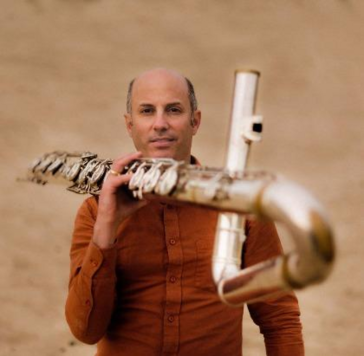Chapter in a book. Discusses the concept of idiocultural music education.
“In-Between” is the title of this conference. If I am right, it focuses on the role of the artist as a middle-man, or middle-woman, between art and learner. It focuses, maybe, on the way artists are capable to transfer knowledge, skills, attitudes, insights, emotions of an artistic nature. And it focuses, maybe, on the way experiences from the domain of the arts may be transferred through the mechanism inherent in the domain of education; two domains which sometimes seem to have a rather problematic relation because the arts are seen as a domain of beauty, of expressivity, of individuality, of freedom, of creativity, whereas education is seen as the domain of standardization, of group work, of compliance to rules, and of mastering the existing.

Students in Higher Music Education (HME) are not facilitated to develop both their artistic and academic musical competences. Conservatoires (professional education, or ‘HBO’) traditionally foster the development of musical craftsmanship, while university musicology departments (academic education, or ‘WO’) promote broader perspectives on music’s place in society. All the while, music professionals are increasingly required to combine musical and scholarly knowledge. Indeed, musicianship is more than performance, and musicology more than reflection—a robust musical practice requires people who are versed in both domains. It’s time our education mirrors this blended profession. This proposal entails collaborative projects between a conservatory and a university in two cities where musical performance and musicology equally thrive: Amsterdam (Conservatory and University of Amsterdam) and Utrecht (HKU Utrechts Conservatorium and Utrecht University). Each project will pilot a joint program of study, combining existing modules with newly developed ones. The feasibility of joint degrees will be explored: a combined bachelor’s degree in Amsterdam; and a combined master’s degree in Utrecht. The full innovation process will be translated to a transferable infrastructural model. For 125 students it will fuse praxis-based musical knowledge and skills, practice-led research and academic training. Beyond this, the partners will also use the Comenius funds as a springboard for collaboration between the two cities to enrich their respective BA and MA programs. In the end, the programme will diversify the educational possibilities for students of music in the Netherlands, and thereby increase their professional opportunities in today’s job market.

Codarts, as a University of the Arts, develops practice-oriented research to enhance artistic development, the arts practice and arts education. Performing arts, specifically dance, music and circus, enable us to communicate beyond geographical, cultural, linguistic and religious boundaries and helps us connect our common values and dreams. The performing arts are universal in their capacity to unite and inspire, providing an excellent opportunity for us to expand our research to an international level. However, the current research strategy at Codarts does not sufficiently match our European research ambitions, even though our education is inherently international and there are multiple strong connections to relevant themes in the European Research Area. Accordingly, with this project, we aim to bridge the gap between our current national research activities and our European ambitions by aligning our research focus with the European Research Area. The aim is to develop a strategy that enriches the arts practice, arts education and our research, creating a stronger connection to the European Research Area and to relevant European networks. Expanding the scope of our practice-oriented research towards European projects is essential to increase research opportunities, improve the applicability and societal impact of our research outcomes and provide more opportunities for students, teachers and researchers to learn and exchange knowledge and insights. Additionally, it is necessary to create a sustainable future for our institution. Strategic brainstorm sessions, benchmark studies, detailed action plans and viability assessments need to make sure that we become aware of our current position in the European research field, as well as identify potential partners and networks to collaborate with. This project will eventually work towards participation in a relevant European project proposal as the first step towards strengthening our position as a leading University of the Arts in Europe.
expressiveness, performance, musicians, skills, educationUsing the genre of Improvisational theatre as a basis, my research aims to design and develop instructional strategies that would help students enhance their expressive skills and achieve the flexibility to adapt their motor behavior to the musical piece. Embodying diverse characters and physicalities, as well as affective states or fictional realities through improv theatre exercises should enable them to expand their expressive range and, therefore, better convey their interpretation to their audience. Through this process, this study also seeks to gain an understanding of the effect this type of training may have on musicians' performance experience, as well as its implications in other areas of their development.